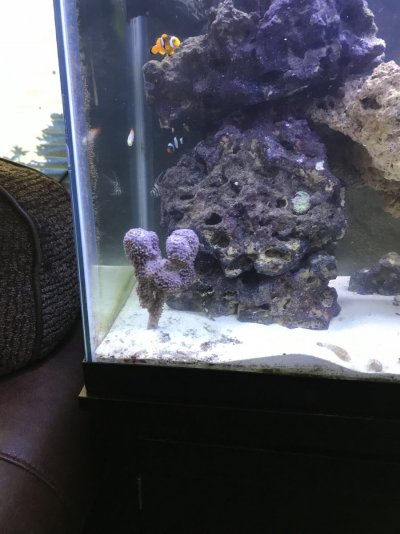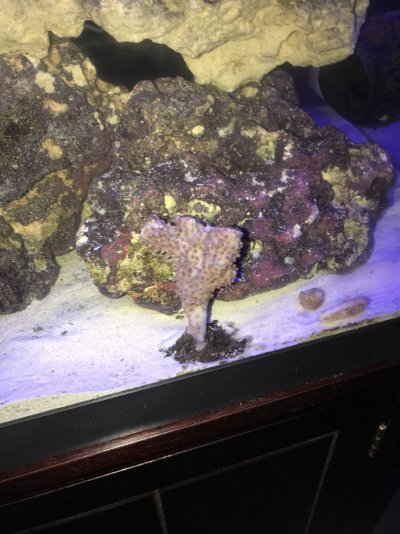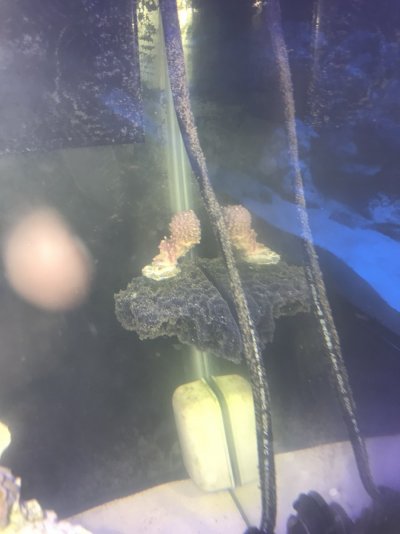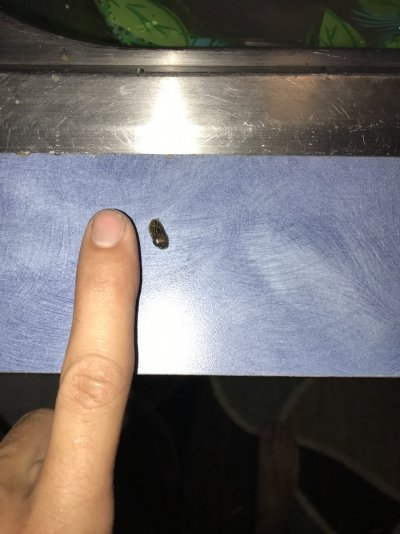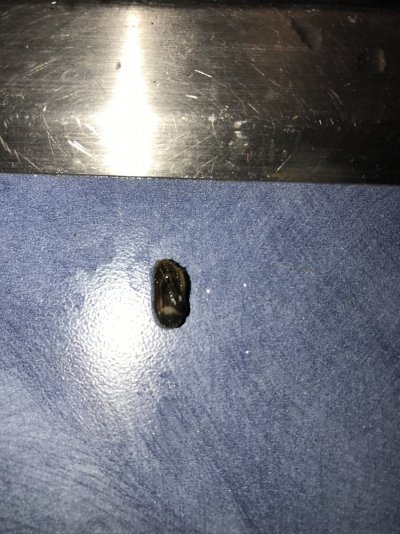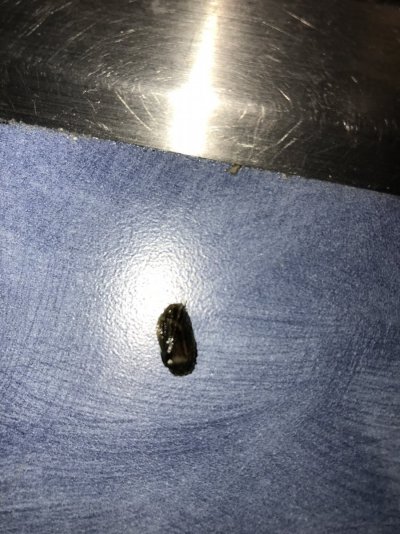Just to inform some of you, be careful what you buy haha. 2 weeks ago I bought a corky finger gorgonian and take into note that all my corals are doing great. I put him in and after a week he started to have a white coat around him and I wasn’t sure what it was. I’ve moved him all over for another week but he wouldn’t open and the white coats we’re getting worse. So I decided to frag what I could to save him. My water smelled very sewagy. Did a water change and started to frag. Once I cut a head off there was a pocket of empty space where 4 of the head met. Once opening I found a baby oyster inside of the coral. After saving what I could water no longer stinks and he already a happy coral. Oyster was inside the dang coral killing it!!!
